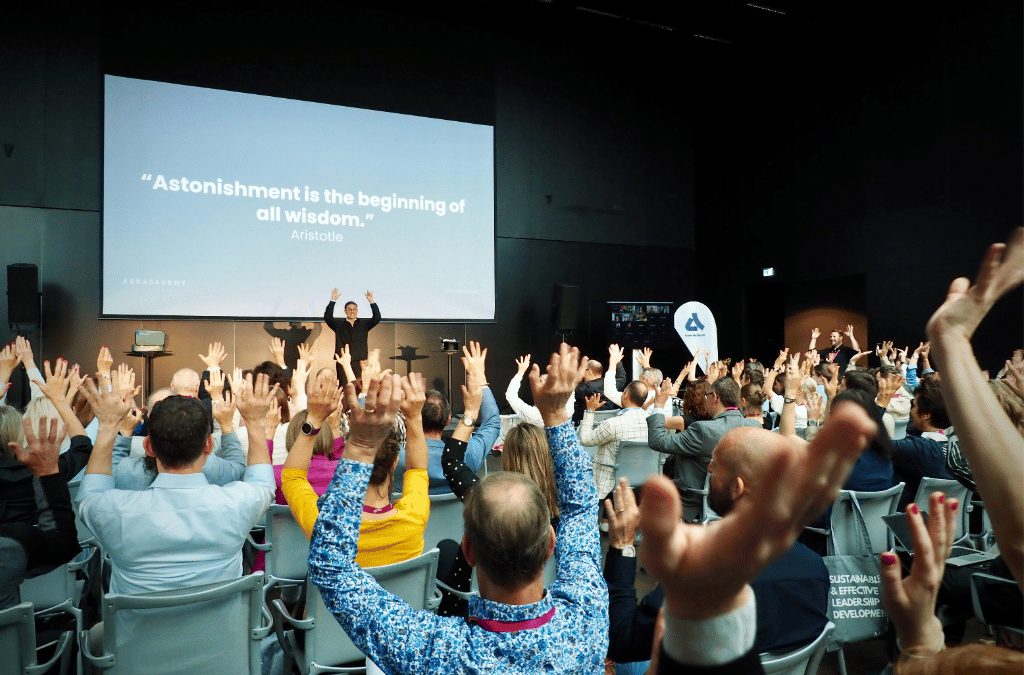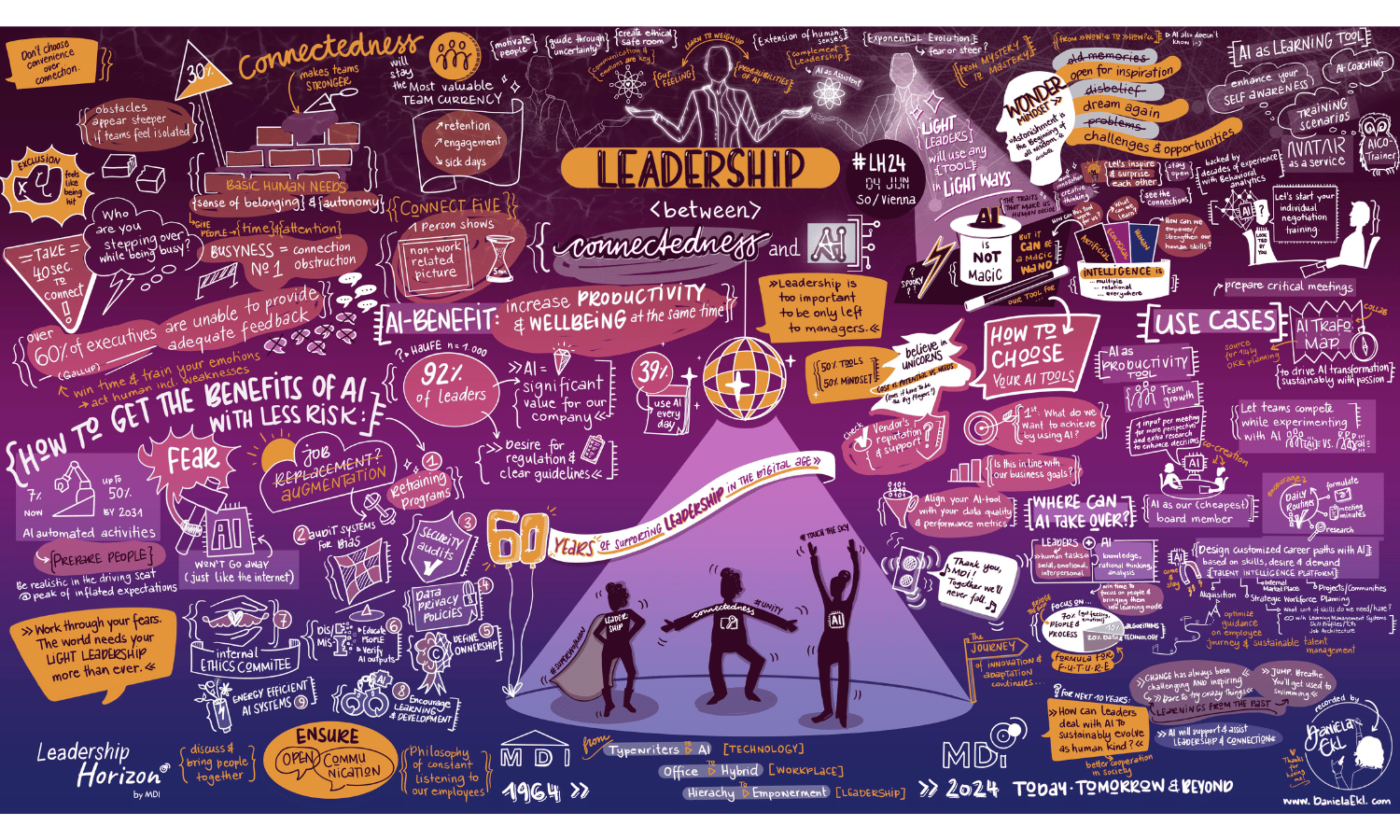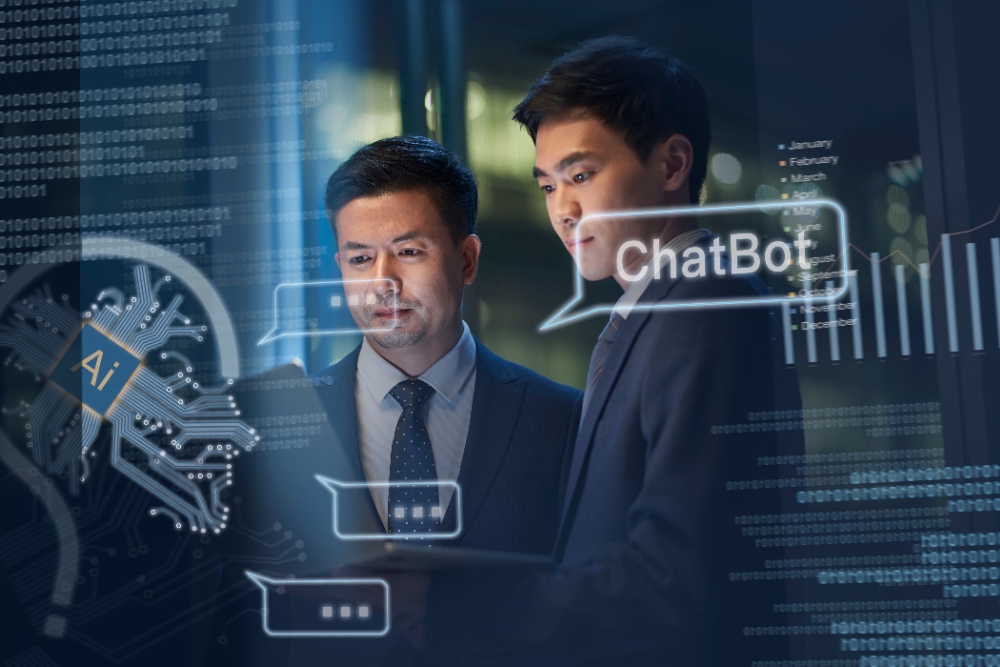
Leadership in Transition: Insights from Leadership Horizon 2024
Photo credits: Jenny Theolin
Leadership in Transition: Insights from Leadership Horizon 2024
This was our Leadership Horizon Conference of 2024! Click here and immerse yourself in the Highlights.
Leadership in transition: Insights from Leadership Horizon 2024
Here you can find the original report by magazine training editor Christoph Wirl:
A guide to the most effective strategies for integrating artificial intelligence – We report on the Leadership Horizon conference.
MDI’s Leadership Horizon Conference retook place this year on June 4 at SO/Vienna and was dedicated to the increasing fusion of leadership practices and Artificial Intelligence (AI). It served as a platform for the exchange of practical findings and strategies for integrating AI into management processes.
Around 160 HR experts and managers from various industries came together to share their experiences and visions. The event was English-language and hybrid, allowing international participants to attend both online and in person.
The impressive line-up of speakers was consistently compelling. The event offered a successful mix of inspiring keynotes, practice-oriented workshops, and insightful business cases.
The two sides of the AI coin
CEO Gunther Fürstberger opened the conference with a virtual avatar, created with the HeyGen program’s help, and looked very similar to the real speaker. He spoke about the importance of artificial intelligence for both companies and managers.
He showed both sides of the coin: For example, many people have already been killed through the use of AI-controlled drones in war zones. At the same time, however, the use of artificial intelligence in medicine has already saved the lives of millions of people or significantly improved their health.
AI therefore has a clear impact on our society, which is why we need to develop and use this technology responsibly. We need to harness the potential of AI for the benefit of humanity while carefully weighing up the potential risks and ethical challenges.
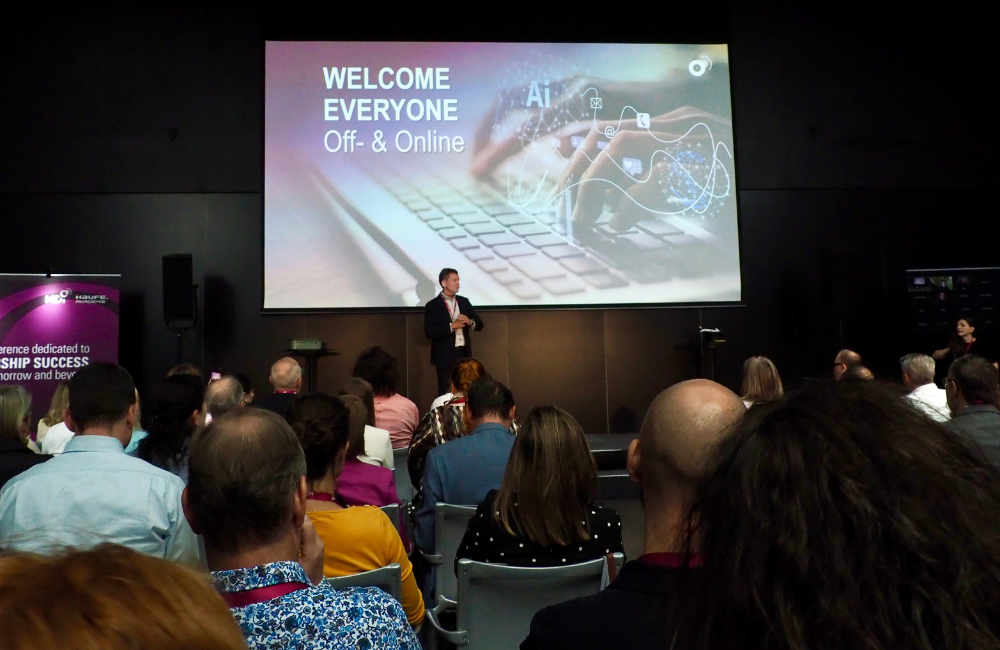
Photocredits: Jenny Theolin
AI is not magic
When the conference moderators asked the audience who was not yet sufficiently familiar with the topic of artificial intelligence, more than half of the attendees responded. This just goes to show that we need to engage more with this forward-looking topic.
Afterward, magician Tobias Grünfelder from the Abracademy fascinated the participants and drew parallels between the art of magic and artificial intelligence:
“AI is not magic – we just need to look behind the scenes. Just as professional magicians do not rely on a single trick, we should also take a holistic approach to the application of artificial intelligence. It is not enough to see AI as some kind of magic bullet that solves all problems by itself. Instead, it is important to understand the underlying mechanisms and functioning of AI systems to be able to use them effectively and responsibly.”
AI-powered leadership
Johannes von Mikulicz-Radecki also emphasized the complexity of using AI in leadership in his presentation “AI-Powered Leadership”:
“The time when you could experiment with AI and try out different use cases is over. Now it’s about putting what you’ve learned into practice.”
This requires managers to clearly understand the possibilities and limitations of artificial intelligence and the ability to strategically integrate this technology into their business processes. In addition, von Mikulicz-Radecki emphasized the general relevance of AI tools in companies:
“Artificial intelligence is too important to be left only to management.”
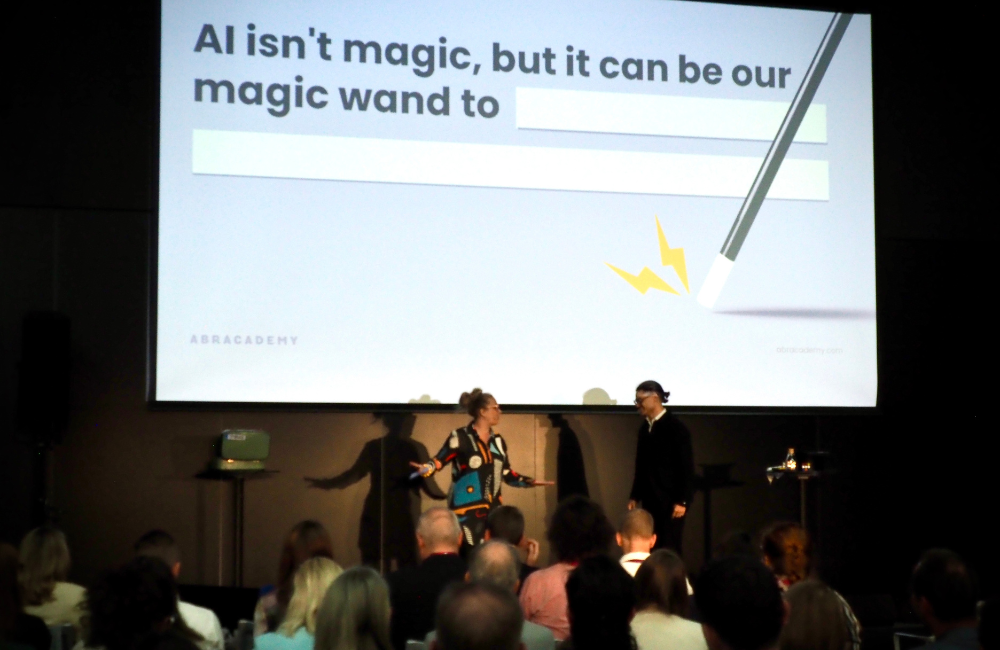
Photocredits: Jenny Theolin
An insight into UNIQA’s AI strategies
Later, keynote speaker Cristina Anculescu showed how UNIQA has optimized the employee experience with the help of AI tools. She reported that 47% of Gen Z employees surveyed said they received better career advice from AI than from their managers. For example, some upload their LinkedIn profile to ChatGPT and ask for suggestions for improvement.
In response, UNIQA has used AI to develop and promote individual career paths for its employees. Intelligent algorithms are used to create individual development plans. These are based on the strengths, interests, and goals of individual employees.
The downside of flexible home office arrangements
After the lunch break, renowned expert and speaker Ryan Jenkins was connected live from the USA. The technical implementation went smoothly so that both the participants on-site and the online participants were able to follow his presentation without any problems. He addressed the importance of interpersonal connections within a company:
“When employees feel isolated, they are up to seven times more likely to work inefficiently.”
He noted that due to excessive use of our smartphones and online media, we are often unable to build and maintain relationships with our colleagues. In this day and age, people are more independent of each other than ever before, making it harder to make and maintain connections. Jenkins therefore warned that the often overly flexible home office regulations should be critically scrutinized.
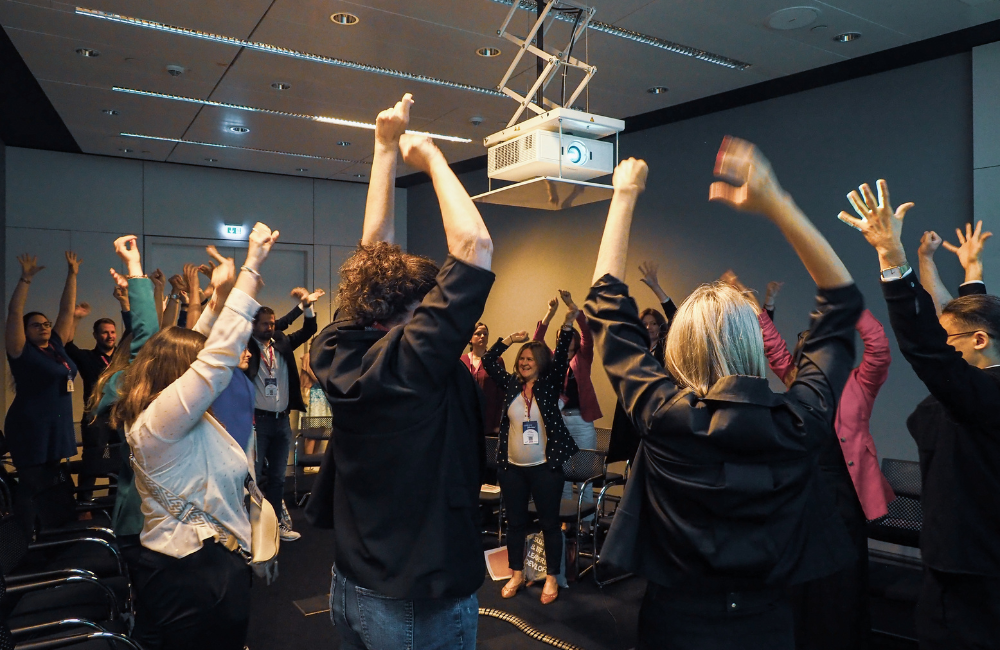
Photo credits: Jenny Theolin
Dangers and fears around AI
Rebecca Johnson presented the possibility of learning using AI avatars and introduced a specific tool that enables particularly effective practice of negotiation skills.
In her final presentation, Bailey Parnell tried to allay the audience’s fears of artificial intelligence. She explained basic concepts such as machine learning and deep learning and introduced various AI tools, including Canva, Suno, Copilot, and image generation software.
She also addressed the potential dangers of AI and discussed possible job losses due to automation, the loss of privacy and the problem of bias in AI systems.
Conclusion on Leadership in Transition: Insights from Leadership Horizon 2024
The Leadership Horizon Conference 2024 once again proved to be a great event for executives who want to integrate AI into their corporate strategies. It provided valuable insights into current trends and inspired thinking about the future role of technology in leadership.


